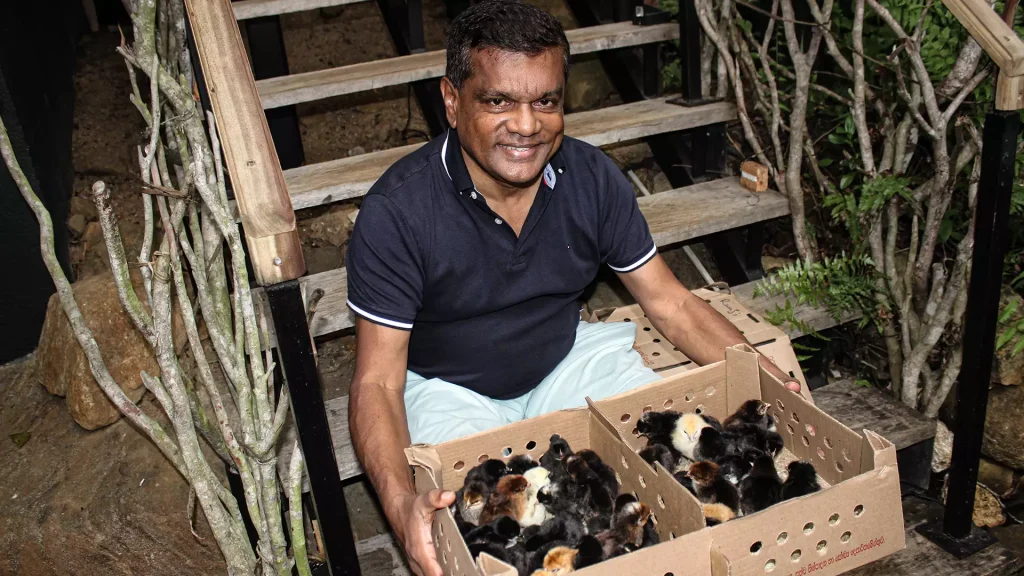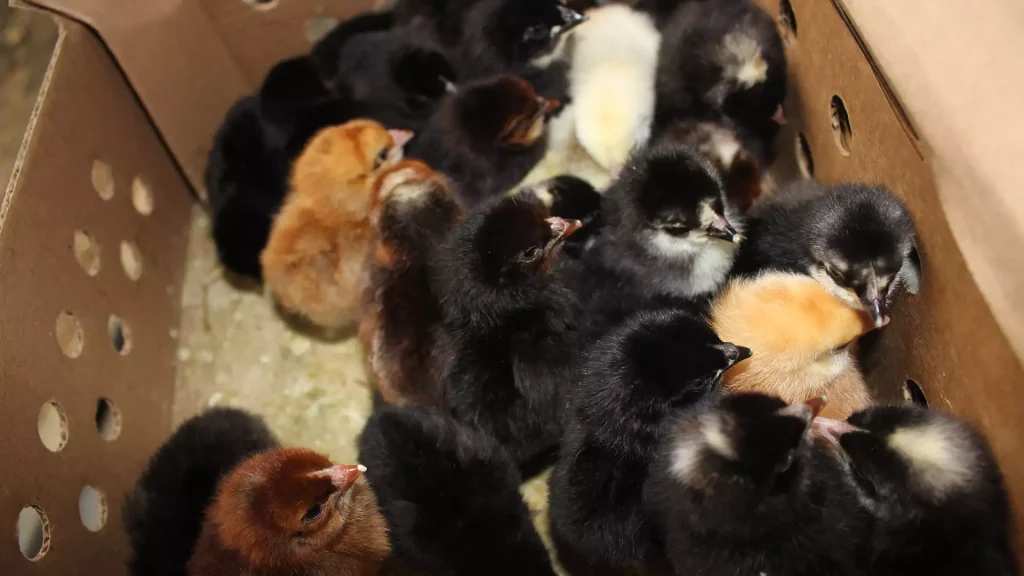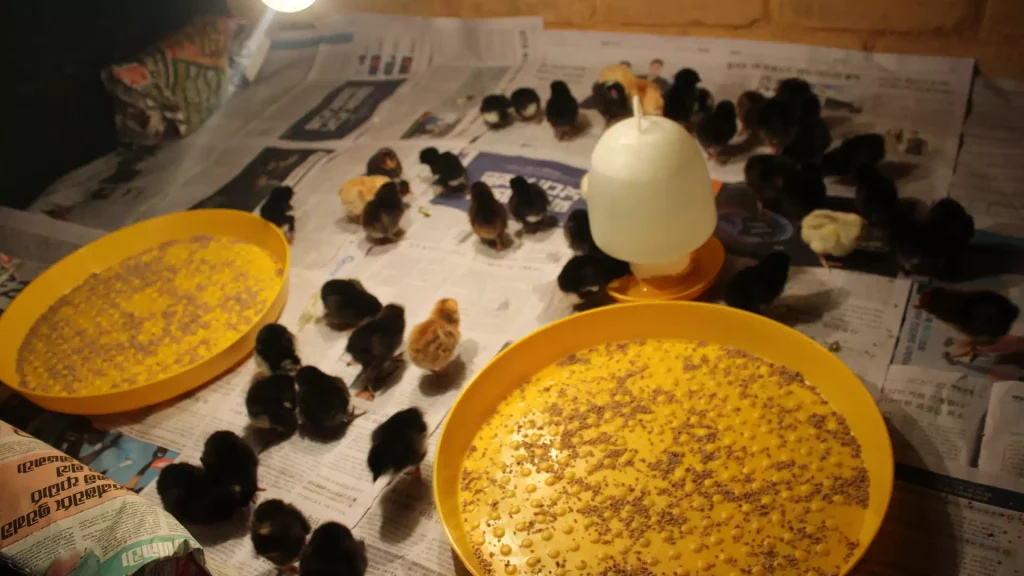Happy Village
Happy Village
By staying at the glenrock, the guest contributes to the Happy Village; as a percentage of income earned by the hotel goes and has already gone on to make significant contributions toward the Happy Village. Some guests go the extra mile in directly assisting the village in meeting specific needs with contributions made through the hotel.
Village Contribution
the glenrock village, unlike most other localities, does not add a burden to the national economy that is already laden with heavy foreign debt, but more importantly, helps the country pay off the foreign debt by channeling foreign currency to the national economy by converting natural strengths of the village to dollars through the glenrock.
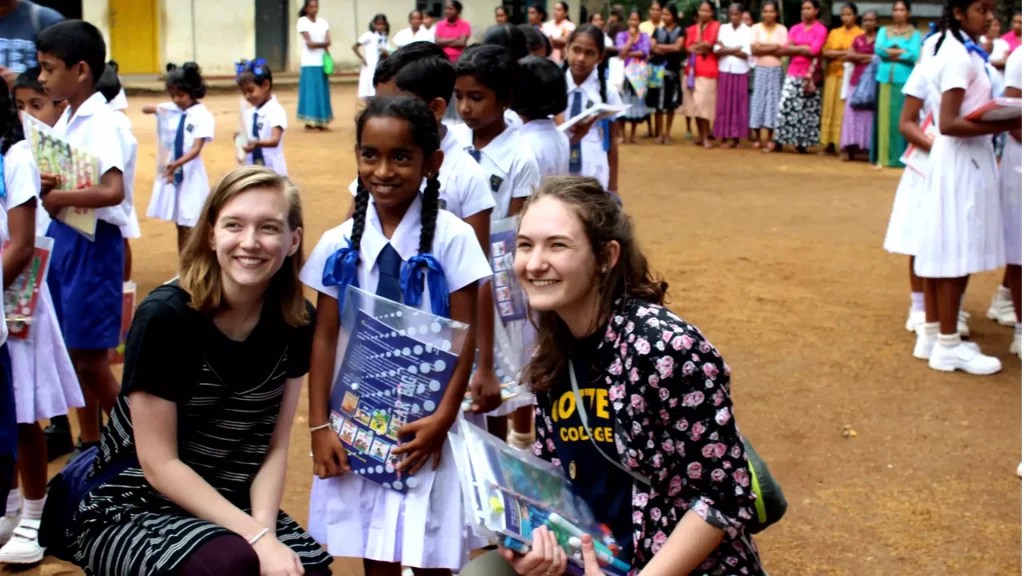

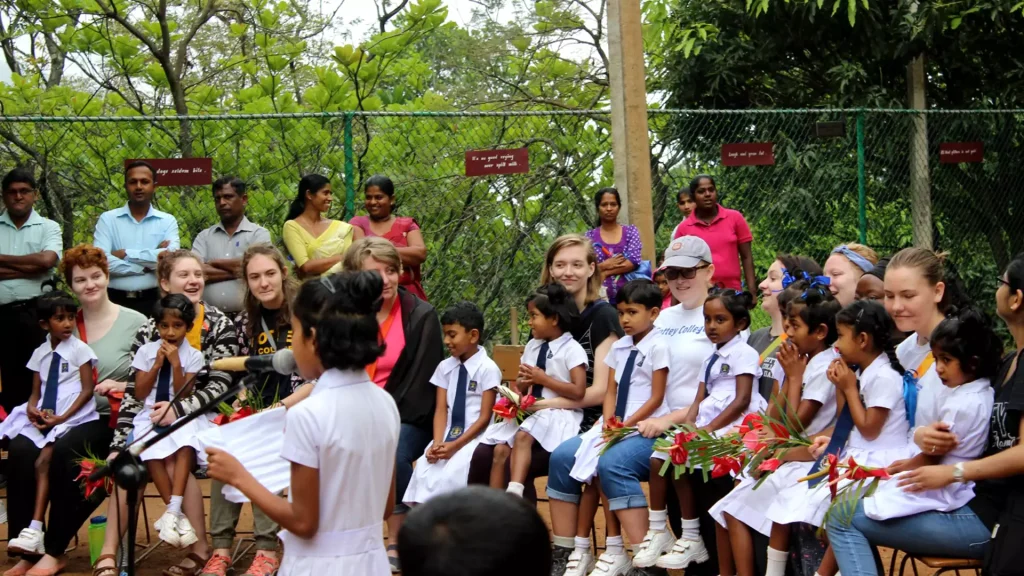
Village Contribution
glenrock has been contributing to the above cause through the following measures.
- Many who used to work in the city are currently employed at glenrock (62% of the staff walk to work from home, while 74 % of the staff are from the immediate village or the surrounding villages of the Balangoda electorate). This allows some of them to do part-time farming while working full-time at the hotel, thus increasing their saving potential.
- Opportunities are granted to village youth at the hotel to develop skills and become tradespersons.
- Organizing organic farming workshops to encourage the practice amongst villagers
- Road development projects sponsored by the hotel.
- Preserving the culture and facilitating the spiritual needs of the villager. Eg. Facilitating the purchasing of traditional drums for the village drummer boys; allowing them to display their skills at the hotel and outside cultural activities for a fee. Building a place of worship (a statue of God Saman, the revered guardian god of the province) and assisting the places of worship in the area through donations and assistance in construction.
- Assisting the school to improve their standards and giving students dictionaries and books and other stationery items.
- Providing aid to individuals in hardship such as conducting eye clinics, donating eyeglasses, and wheelchairs, and assisting in times of sorrow (funerals, etc)
- Encouraging farmers to sell their crops to the hotel at the retail selling price (Cutting the middleman to give more saving power)
- Preserving and protecting nature by planting trees in the hotel premises and the vicinity – the hotel plants two trees for each tree they use for the hotel’s construction needs.
Challenges
The above contributions have been made by glenrock despite operating with monetary losses so far. The remote location and the operational model (such as not allowing party revelers, noisy day-out guests, making the restaurant and the bar exclusive for the in-house guests, etc.) have thus thrown many a financial and logistical challenge. Since too many guests could disturb the villagers’ peaceful lifestyle and also could affect the nature lover guest’s value expectation of a peaceful holiday, the hotel has purposely limited itself to only ten rooms. The hotel has not so far even reached the breakeven point as a business venture as increasing occupancy levels is harder compared to a conventional hotel due to the above-said self-imposed limitations. However, glenrock is challenging this challenge without compromising the values on which it is founded, operated, and promoted. The hotel would do its best to disprove the saying ‘ Road to hell is paved with good intentions’. Upon anticipated reaching the profit levels in the next few years, glenrock, the unique social enterprise model would implement the above measures to sustain the happy village, by funding them as follows.
Ulugalathenna, the village around the glenrock is home to mostly farming families who are showered with the simple luxury of unpolluted air, comfortable temperatures, pure water, and fresh farm produce. With no rent, mortgage, lease, or high utility bill payments in the equation, and with a Buddhist-influenced simple middle-path lifestyle, money-making pressure to meet the demands of a materialistic lifestyle is minimal for them. If the words ‘Santhushtin paraman dhanan’ (Happiness is the ultimate wealth) of Gautama Buddha is the yardstick, they are among the wealthiest in the world.
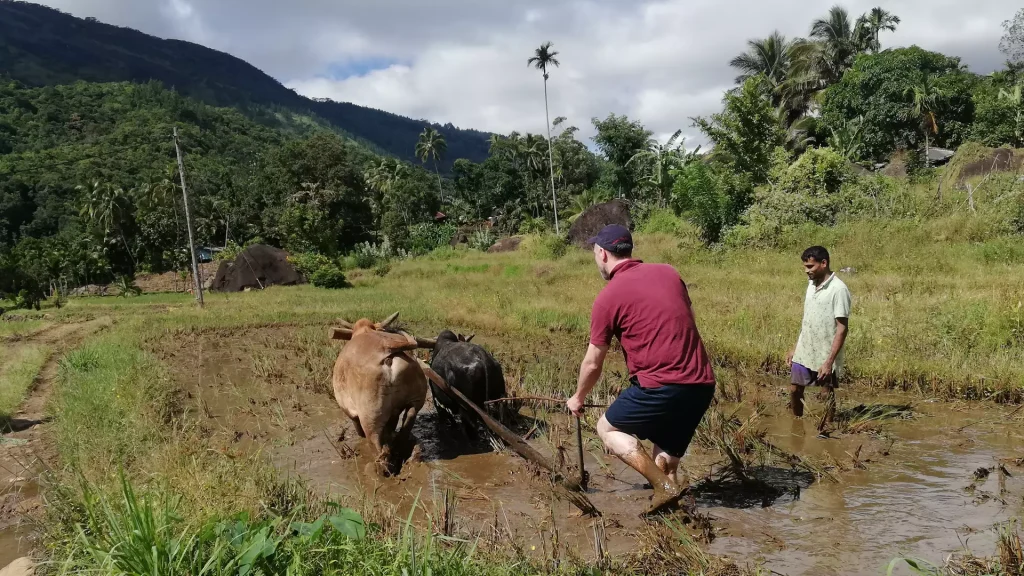
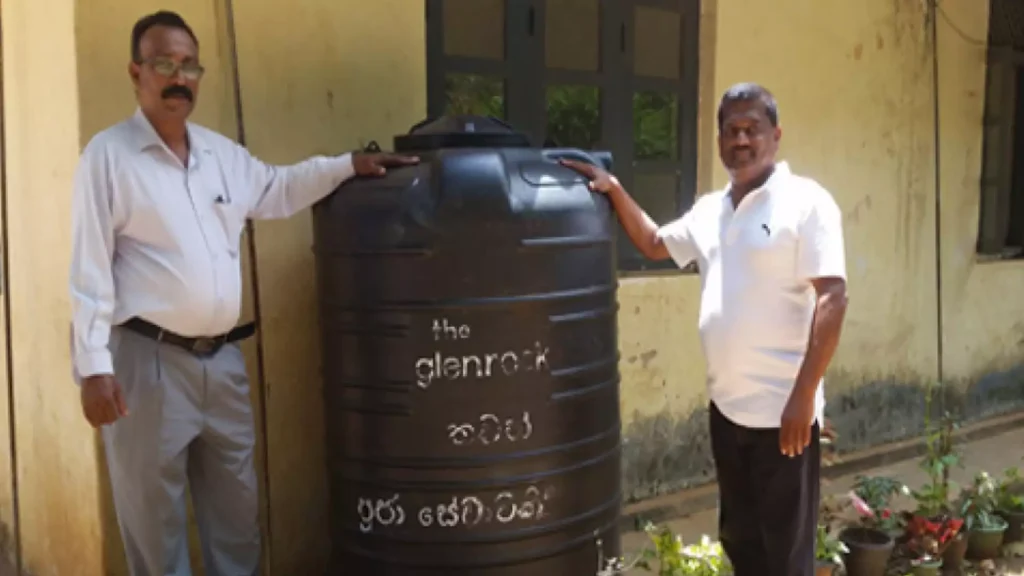
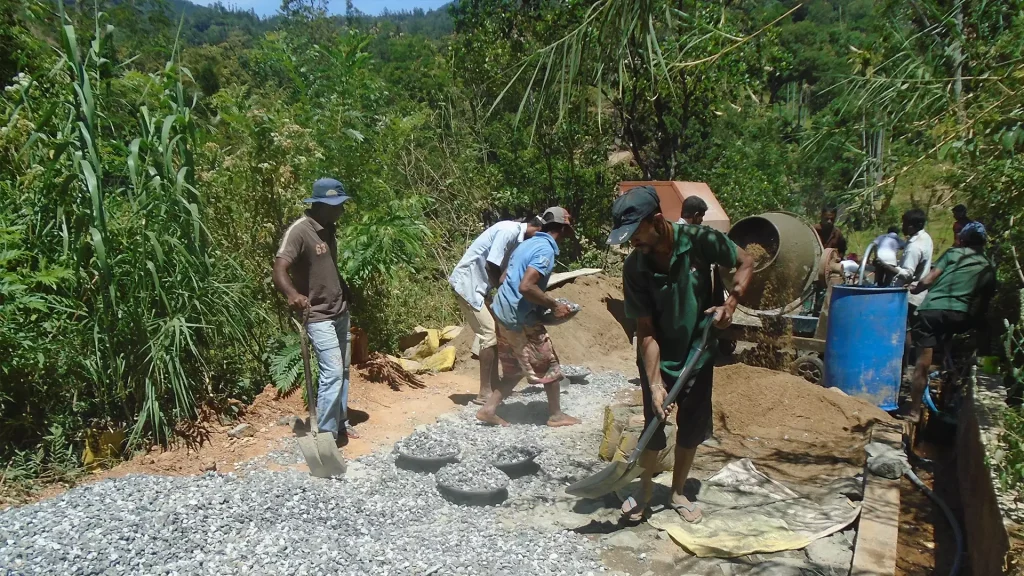
Consolidating
Nevertheless, the glenrock, through the villagers have identified that there is a want for sustainable development in the Happy Village so that the blissful life of the glenrock villager would continue. Among them;
The following measures would help improve the above-mentioned areas
- Improving alternative sources of income for farmers to mitigate the effects of crop failure situations, and combat the effects of market price fluctuations.
- A suitable way of caring for the sick and elderly and improving access to education for children.
- Improving environmental sustainability
The following measures would help improve the above-mentioned areas
- Women who are homemakers and only passively assist in farming will come into the fray to bring in another mode of income to households. Encouraging home-based income sources such as beekeeping, ornamental fish farming, home gardening with local fruits, vegetables, and medicinal herbs, handcraft making, and producing homemade products such as jams and pickles. The required assistance such as securing plants, fish, basic equipment, and compost will be done by the hotel. In doing so, the glenrock aims to empower women in society and provide alternative sources of income to households in the village.
- Cutting the middleman – farmers selling their crops to the end user – such as glenrock; cutting vendors and middlemen to give full profit to the farmer.
- Using Traditional Agricultural Intelligence and market intelligence-backed cultivation including crop interchange promotion.
- Promotion of Organic and Value added farming including using and preserving methods of indigenous pest control methods.
- Reforestation – replacing flora harmful to the environment and water sources with local fruit-bearing trees, thereby drawing mischievous monkeys to the forests instead of harming and destroying farmers’ crops.
- Selling Fresh produce by the highway, to provide yet another source of income.
- Recreational facilities for the youth – Facilitating sports equipment for the youth
- Generation of income through the preservation of cultural practices eg. Finding income avenues for the villager by displaying their skills at the hotel and outside cultural activities.
- No child left behind – Children who do not perform well enough to proceed to pursue higher education should be taken care of and found employment and given the relevant training to their develop skills through trade schools and integrate them into the working community. Making farming more attractive with market intelligence and value-added agriculture options and instilling pride so that youth can be encouraged to take over farming from the older generation is yet another viable option.
- More money is therefore spent at the village grocer and local transport services etc. indirectly contributing to an increase in the income of the other villagers.
- Other than the direct monetary savings to the villager, keeping the parents in the village saves a social cost as it ensures a closely knit family unit with happier kids and happier parents, leaving the least room for marital life complications.
- Reducing city migration benefits the country; as it, in turn, reduces the need to spend on roads, and transport (fuel, vehicles) and also reduces city congestion and traffic.
This, however, does not mean that those who have extraordinary skills that need exposure outside the village (eg. University education, foreign opportunities) or desire to pursue a life outside the village are discouraged. The plan is to mainly remove factors that push people out of the village while adding pulling factors to the village life.
- Improve the financial literacy of the average villager.
- Improve the awareness of the villager of their natural wealth and grow a sense of self-worth and pride, and prevent the villager from falling prey to advertising fuelled consumerism and materialism that would lead to unhappiness through unending desires.
the glenrock has thus been a catalyst for the development of the village. A happy village would not put pressure on the country and the world as a whole, as a self-satisfied and self-sustaining village will not put pressure on city accommodation needs, transport, highways, fossil fuel burning, and many such areas. Moreover, since Sri Lanka is burdened with heavy foreign debt, earnings through our valued foreign guests have added value to Sri Lanka and her people in two main ways. Firstly, the glenrock villager does not add to the foreign debt and secondly, and most importantly the glenrock contributes to paying off the foreign debts by providing foreign currency to the government. glenrock is positive that along with its growth, it can help keep villagers in happy villages by increasing their income and improving the education facilities for children. Value additions such as facilitations on road developments, facilitation in other activities such as eye clinics, eyeglass donations, assistance in upkeeping places of worship, and providing aid to specific individuals in hardship have been carried out by the glenrock. The hotel will always be at the forefront and will continue to speed up the mentioned social change.
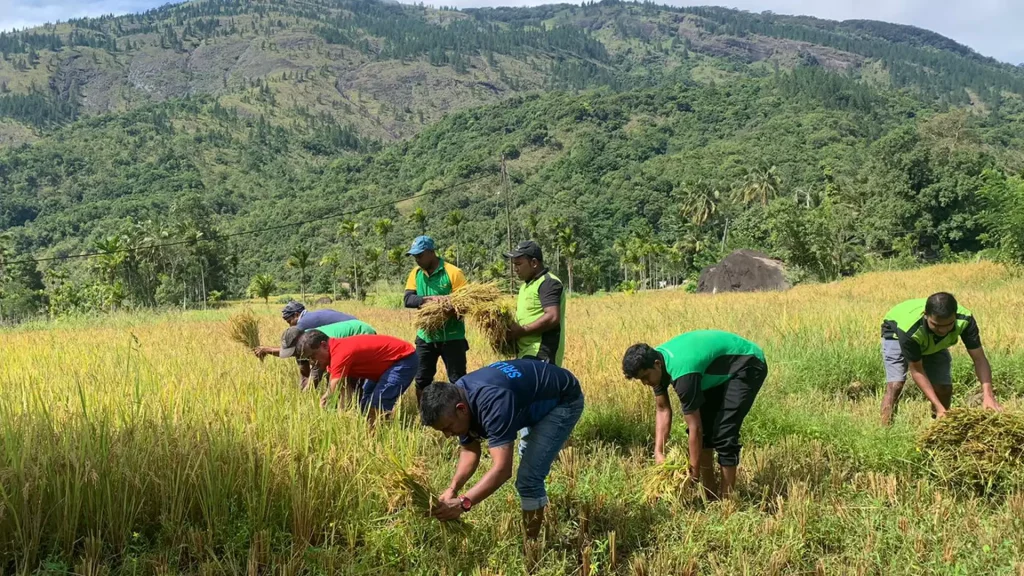
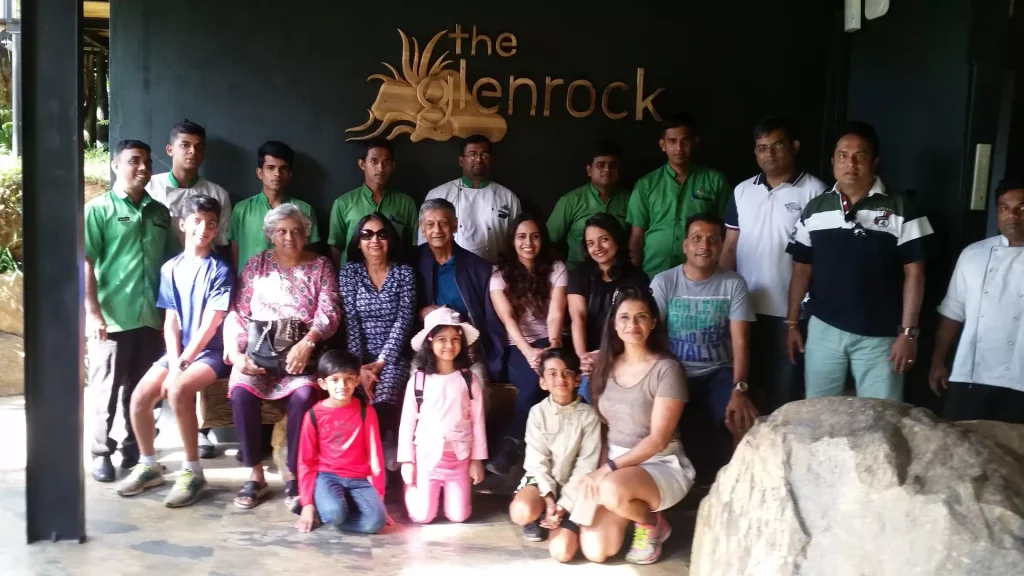
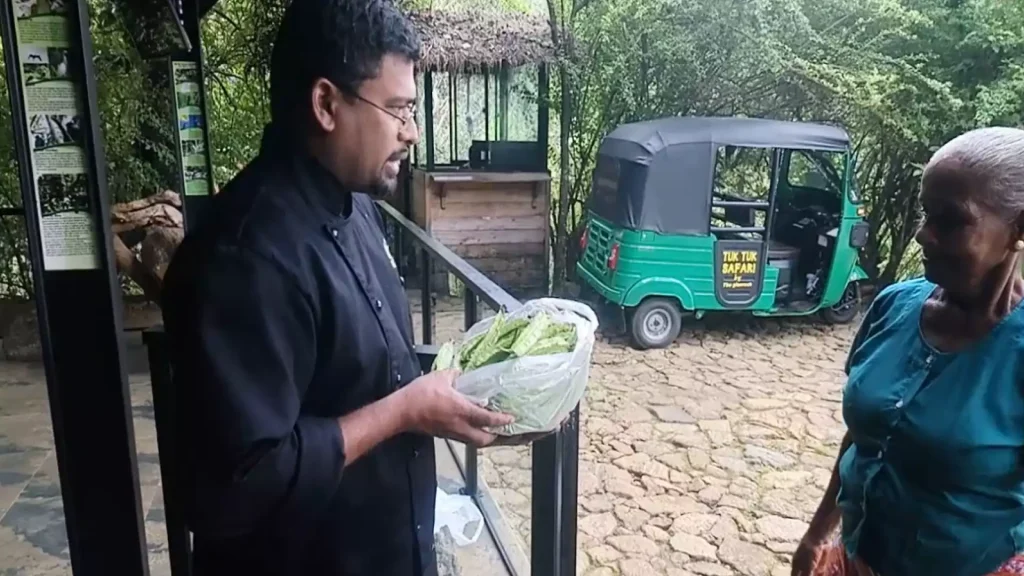
Enrich All
The guest is the key contributor to the change they contribute toward through the glenrock. From beaches to the mountains and wildlife, from culture and wellness within shorter travel, Sri Lanka is probably the greatest value package no other country can offer to the world traveler. glenrock promotes a tourism model for such small wonders, where give value and get value is even for all; the guest, the people, the country, and the ownership. For the owner who is a village-born Sri Lankan Canadian professional, the glenrock is a homegrown economic model envisioned and enlivened through ‘Happy Village’, the proof of the bigger concept for his land of birth, ‘janmabhoomi’.
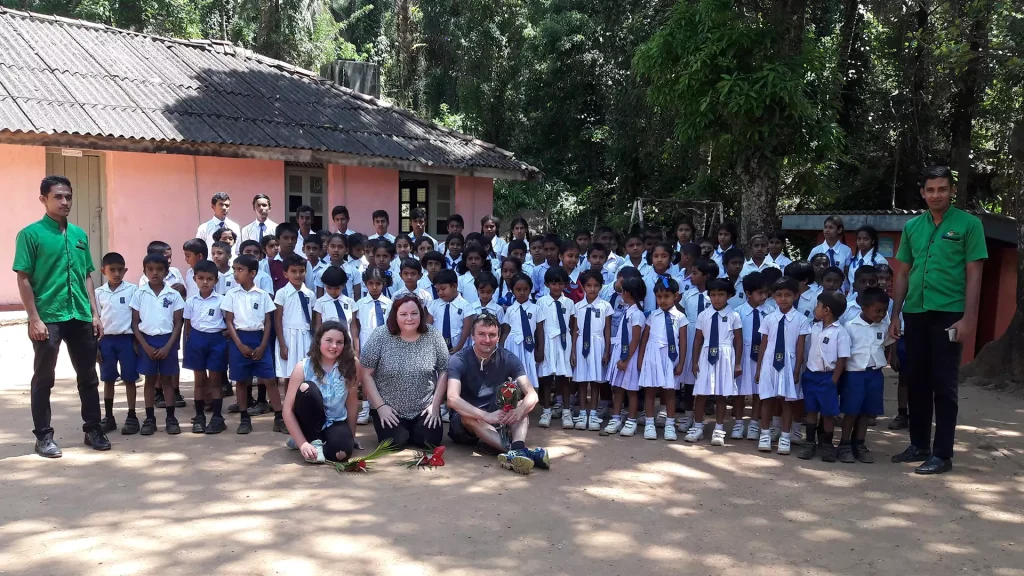
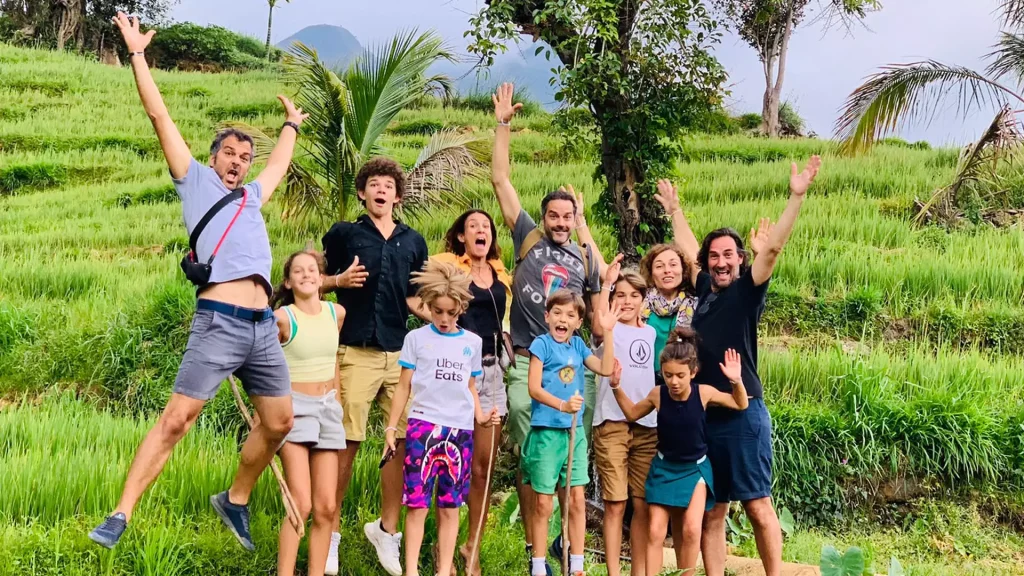
Eggs, Children and Our Guests
Mainstay in our Sri Lankan traditional meal has been carbohydrates (starchy and sugary food) as we used to be highly physically active in the past. With physical activities becoming less even among children, our usual carbohydrate intake poses a serious threat to health and well-being as unburnt carbohydrates (due to fewer physical activities) cause overweight, obesity, and diabetes.
At the same time, while nobody dies in starvation in Sri Lanka( due to the abundance of carb-rich food), lack of protein in the diet slowly bleeds the nation as it has unleashed a dangerous domino effect it has a direct impact on intelligence, memory power, physical growth, physical strength, mental health, and immunity.
However, protein-rich food such as meat, fish, legumes, and eggs are a luxury as they are out of the buying power of the majority. In addressing this situation at the village level, glenrock through its Janmabhoomi Foundation has launched a program called ‘ProViM CARE’ (Protein, Vitamins, Minerals). As part of it, we have reared and distributed village chicken breeds among the willing staff and also the villagers. Old Sri Lankan households used to raise village chickens and therefore it has our traditional roots also children have found new pets through this project too.
Even the glenrock rears chicken (village breed) at the resort site. We strive to provide our valued guests, our staff, and the villagers such better nutritious eggs, through this program, while being environmentally friendly.
